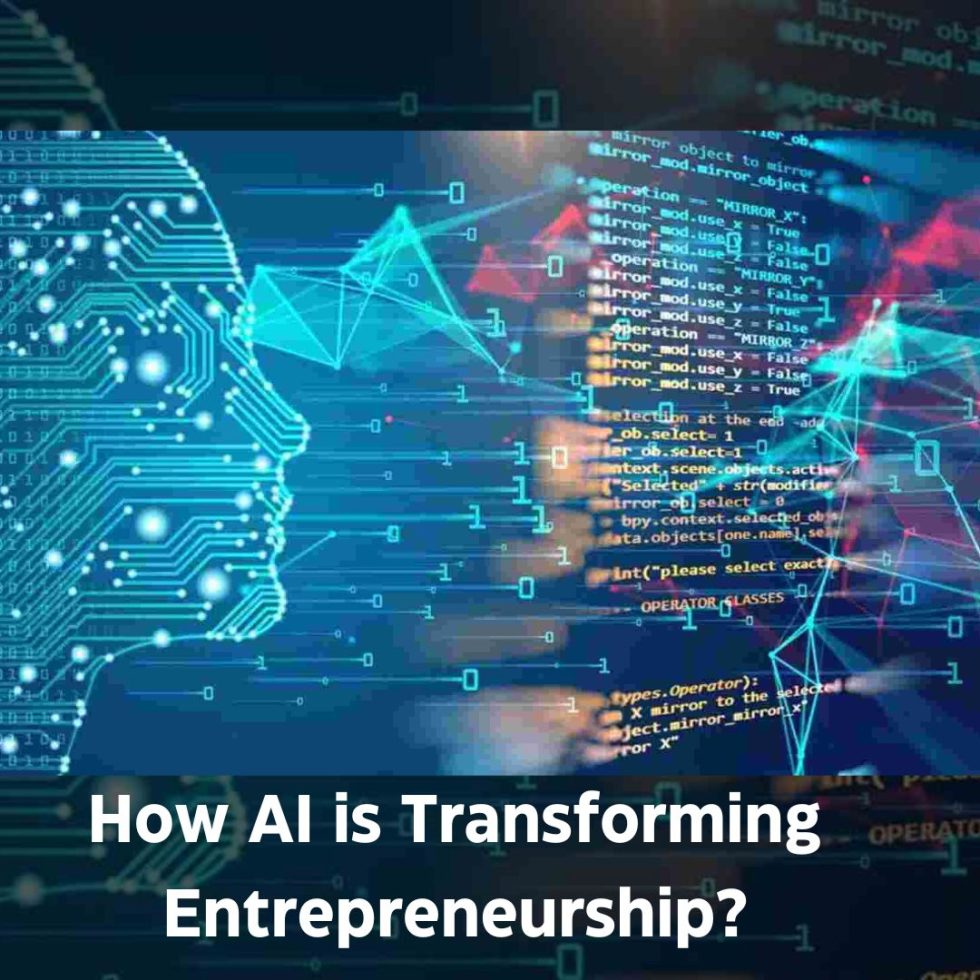
Artificial intelligence (AI) is a field of computer science that, in its most basic sense, focuses on developing systems and procedures that can perform and respond in the same manner as a human operator. Computers can now use vast amounts of organised and unstructured data to do almost countless jobs while applying problem-solving, rationalization, and predictive analysis thanks to AI-driven technology.
AI is transforming entrepreneurship by enabling businesses to work smarter, faster, and more efficiently. It is helping entrepreneurs to better understand their customers, make better decisions, and drive growth and profitability. here are the certain aspects in which AI is transforming businesses
- Improved Decision Making: AI can analyze vast amounts of data, identify patterns, and provide insights that help entrepreneurs make better decisions. This can lead to improved efficiency, productivity, and profitability.
- Personalized Customer Experience: AI-powered tools can analyze customer data to provide personalized recommendations and experiences. This can improve customer satisfaction, loyalty, and retention.
- Automating Routine Tasks: AI can automate routine tasks such as data entry, customer support, and marketing. This frees up time for entrepreneurs to focus on higher-value activities such as innovation and strategy.
- Predictive Analytics: AI can predict future trends and outcomes based on historical data. This can help entrepreneurs make more accurate forecasts and identify opportunities for growth.
- Cost Savings: AI can help businesses reduce costs by automating processes, reducing errors, and improving efficiency.
- Improved Marketing: AI can analyze customer behaviour and preferences to deliver targeted and personalized marketing campaigns. This can improve conversion rates and ROI.
- Enhanced Cybersecurity: AI-powered cybersecurity tools can detect and prevent cyber attacks, protecting businesses and their customers from data breaches and other security threats.
How AI help in improving decision-making?
- Analyzing Large Data Sets: AI-powered tools can analyze vast amounts of data, identify patterns and insights, and present them to decision-makers clearly and understandably. This can help entrepreneurs make data-driven decisions based on objective facts rather than subjective opinions.
- Automating Routine Tasks: AI can automate routine tasks such as data entry and analysis, freeing up time for decision-makers to focus on more strategic tasks such as innovation and planning.
- Identifying Opportunities and Risks: AI can identify potential opportunities and risks that might be overlooked by humans. For example, AI can analyze social media trends to identify emerging customer needs or preferences.
- Enhancing Collaboration: AI can help decision-makers collaborate more effectively by providing real-time data and insights that can be shared across teams and departments. This can lead to more informed decisions and better outcomes.
How AI is used to automate the business?
Business automation refers to the use of software programmes to automate monotonous operations so that personnel can focus on higher-value work. This comprises AI-powered automation, robotic process automation, and business process automation (BPA). Business automation through AI typically involves the following steps:
- Identify the business process to be automated: The first step is to identify the business process that can be automated through AI. This could include tasks such as data entry, customer service, or inventory management.
- Gather and prepare data: Once the process has been identified, data needs to be collected and prepared. This could involve extracting data from various sources, cleaning and organizing the data, and formatting it for use in the AI model.
- Train the AI model: An AI model needs to be trained using the prepared data. This involves feeding the model with examples of input data and the desired output. The model will then learn to recognize patterns and make predictions based on the input data.
- Test and refine the AI model: The model needs to be tested to ensure that it is accurate and reliable. This involves using test data to evaluate the model’s performance and making adjustments as needed to improve accuracy.
- Deploy and integrate the AI model: Once the AI model is trained and tested, it can be deployed and integrated into the business process. This could involve integrating the AI model with existing systems or creating new workflows that incorporate the AI model.
- Monitor and optimize performance: The performance of the AI model needs to be monitored and optimized over time. This involves tracking key metrics, identifying areas for improvement, and making adjustments to the model as needed.
How AI is solving the problem of process optimization of businesses?
Predictive Maintenance: AI can be used to predict when machines will fail and need maintenance. This helps in preventing downtime and reducing maintenance costs.
Quality Control: AI can be used to detect defects in products during the manufacturing process. This helps in identifying and resolving quality issues in real-time, reducing the amount of waste and improving product quality.
Supply Chain Optimization: AI can be used to optimize supply chain processes such as inventory management, demand forecasting, and logistics. This helps in reducing lead times, improving delivery times, and reducing costs.
Process Automation: AI can be used to automate repetitive tasks such as data entry, order processing, and customer support. This helps in reducing manual labour, increasing efficiency, and improving accuracy.
Final Words
AI is the technology that everyone is considering while starting a business because technology like AI saves time, cost and human resources. With the adoption of technology like AI, businesses grow faster hence generating more results within less time.









